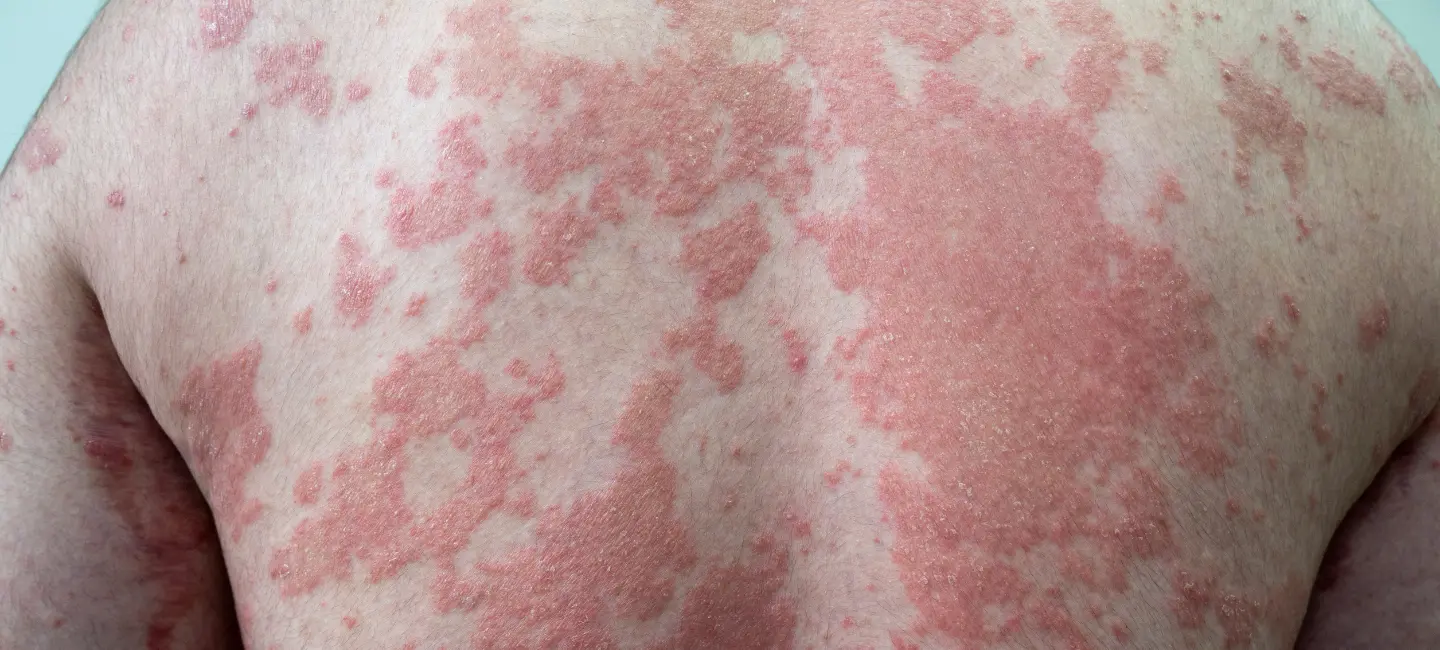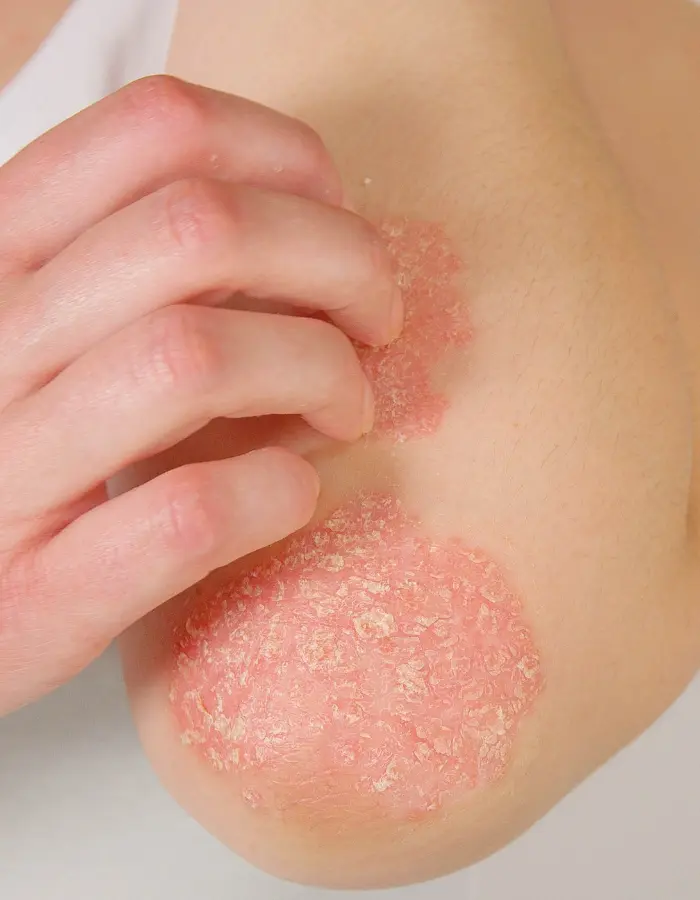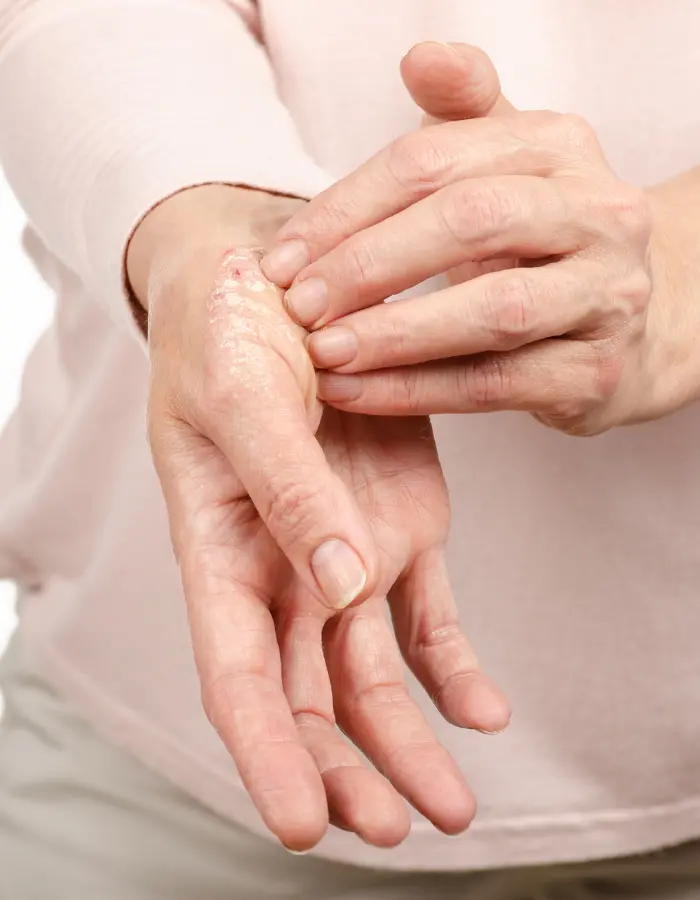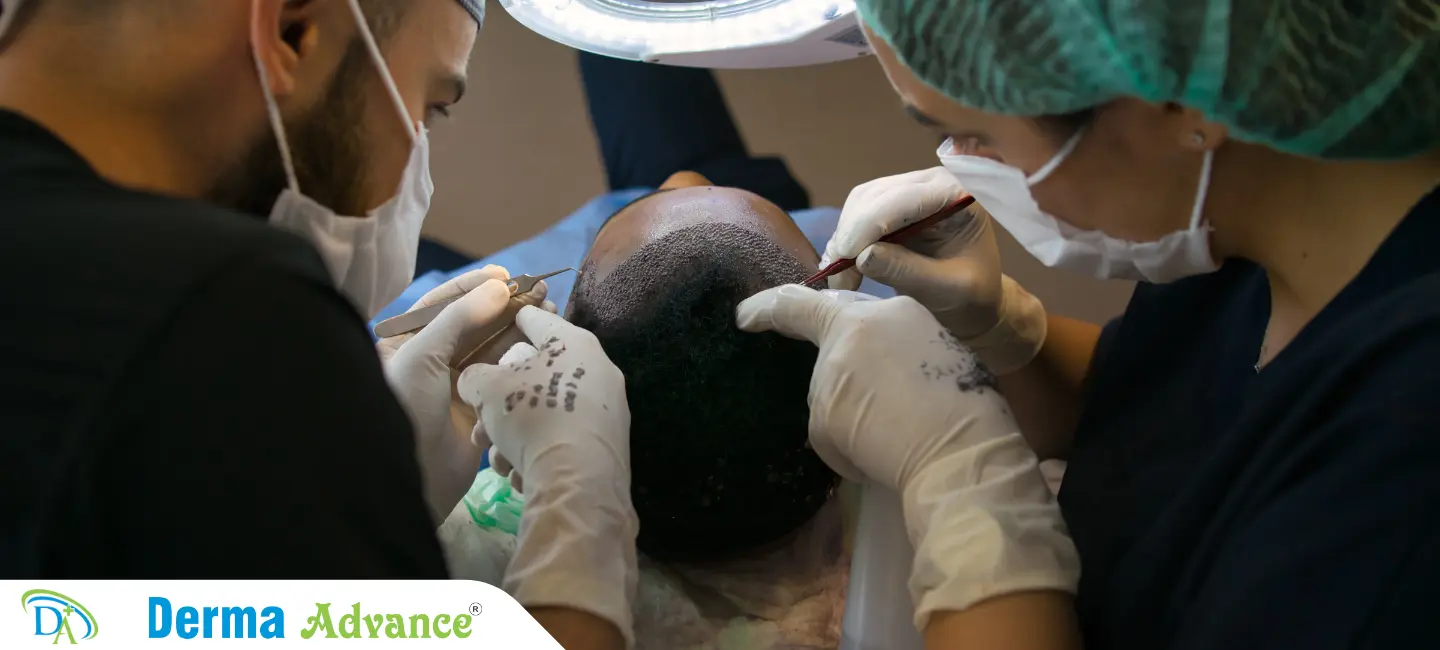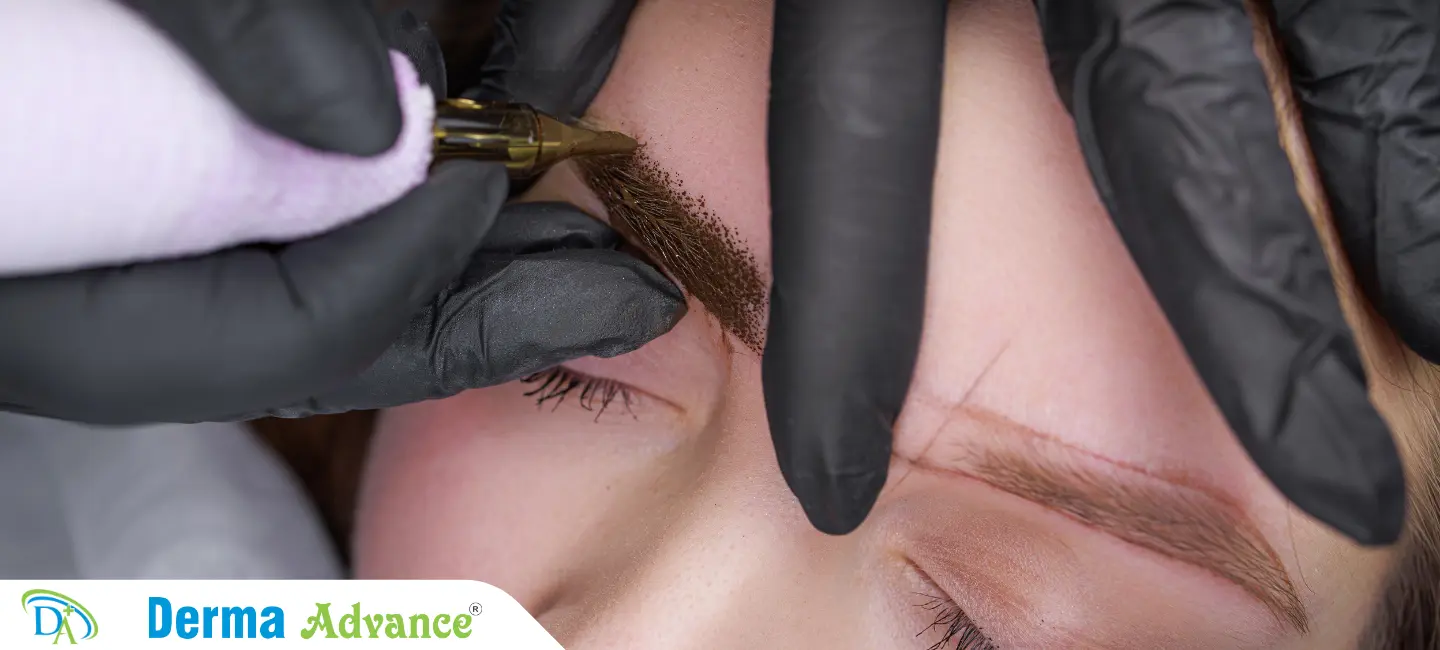What is Psoriasis?
Psoriasis is a chronic autoimmune disease where skin cells multiply faster than usual, causing red, scaly patches that can be itchy and painful.
Psoriasis is characterized by the rapid turnover of skin cells, leading to the formation of red, inflamed patches covered with silvery scales. These patches can appear anywhere on the body but commonly affect the scalp, elbows, knees, and lower back. The condition often cycles through flare-ups and periods of remission, significantly impacting the skin's appearance and causing discomfort.
At Derma Advance, our experienced dermatologists specialize in the comprehensive management of psoriasis. We offer personalized treatment plans tailored to each patient's needs, utilizing advanced therapies to alleviate symptoms, reduce inflammation, and prevent flare-ups. Our goal is to improve skin health and enhance quality of life through effective and compassionate care.
Immense Care
We aim to provide immense care tailored to manage and treat your health condition. Be assured, you are in safe hands!
Modern Techniques
We provide modern treatments to ensure you get the quickest and most effective solution to your health conditions!
Symptoms of Psoriasis
What are the Symptoms of Psoriasis?
Psoriasis symptoms vary widely but typically include red, inflamed patches of skin covered with thick, silvery scales. These patches can be itchy and sometimes painful, leading to discomfort and self-consciousness. In addition to skin changes, individuals with psoriasis may experience dry, cracked skin that may bleed, itching, burning, or soreness. Some may also notice thickened, ridged, or pitted nails, which can be a sign of nail psoriasis. Joint inflammation, known as psoriatic arthritis, may occur in some cases, causing stiffness, swelling, and pain in the joints.
Psoriasis symptoms can range from mild to severe and may worsen during flare-ups triggered by factors like stress, infections, or certain medications. Managing symptoms often requires a multifaceted approach, combining topical treatments, phototherapy, systemic medications, and lifestyle adjustments. At Derma Advance, we focus on providing comprehensive care to help patients manage their symptoms effectively and improve their overall quality of life.
Red, Inflamed Patches:
Characterized by red, inflamed patches of skin covered with thick, silvery scales.
Itching and Pain:
Skin patches may be itchy, causing discomfort and occasional pain.
Dry, Cracked Skin:
Areas affected by psoriasis may develop dry, cracked skin that may bleed.
Nail Changes:
Thickened, ridged, or pitted nails, known as nail psoriasis, can occur.
Joint Inflammation:
Some individuals may experience psoriatic arthritis, causing joint stiffness and swelling.
Diagnosis of Psoriasis
1
Skin Biopsy:
A biopsy involves taking a small sample of affected skin to examine under a microscope. This helps confirm the presence and type of psoriasis, guiding appropriate treatment.
2
Visual Examination:
Dermatologists visually inspect the skin for characteristic red, scaly patches and assess their extent and severity, crucial for accurate diagnosis.
3
Medical History Analysis:
Detailed review of the patient's medical history to understand the onset, progression, and potential triggers of psoriasis, aiding in personalized care.
4
Dermatological Assessment:
Utilizes specialized tools and techniques to evaluate the severity of psoriatic lesions and monitor treatment progress over time.
5
Laboratory Tests:
Blood tests may be conducted to rule out other conditions mimicking psoriasis or to assess inflammatory markers associated with the disease.
6
Biological Marker Evaluation:
Advanced testing to analyze genetic and immunologic factors contributing to psoriasis, providing insights into personalized treatment approaches.
Book Your Appointment
Find Solution to Psoriasis Now!
Meet Our Expert Psoriasis Specialists


Treatment of Psoriasis
How is Psoriasis treated?
Managing psoriasis involves a comprehensive approach to alleviate symptoms, reduce inflammation, and prevent flare-ups. At Derma Advance, our dermatologists create personalized treatment plans tailored to each patient's specific type and severity of psoriasis.
Treatment includes topical therapies like corticosteroids and vitamin D analogs to reduce inflammation and promote healing. Phototherapy using UVB light is effective in slowing skin cell growth. For moderate to severe cases, systemic medications like methotrexate or biologics may be prescribed to manage symptoms by suppressing the immune response.
Lifestyle adjustments such as stress management, avoiding triggers, and maintaining a healthy diet complement medical treatments to effectively manage psoriasis and enhance skin health.
Topical Treatments:
These include corticosteroids, vitamin D analogs, retinoids, and moisturizers applied directly to the skin to reduce inflammation and scaling.
Phototherapy (Light Therapy):
Using UVB light, phototherapy slows down the rapid skin cell growth and reduces inflammation.
Systemic Medications:
For moderate to severe cases, oral medications like methotrexate, cyclosporine, or biologics are prescribed to suppress the immune system and manage symptoms.
Lifestyle Adjustments:
Managing stress, avoiding triggers, maintaining a healthy diet, and using moisturizers regularly are crucial in managing symptoms and preventing flare-ups.
Biologic Therapies:
These advanced medications target specific parts of the immune system involved in psoriasis and are typically used for severe cases.
Alternative Therapies:
Some patients find relief from complementary therapies such as acupuncture, dietary supplements, and herbal remedies.
Causes of Psoriasis
1
Genetics:
Family history plays a significant role. People with certain genetic variations are more likely to develop psoriasis.
2
Immune System Dysfunction:
An overactive immune system mistakenly attacks healthy skin cells, triggering inflammation and rapid turnover of skin cells.
3
Triggers:
Factors like stress, infections (such as streptococcal infections), injury to the skin (like cuts or sunburns), and certain medications (like lithium, beta-blockers) can exacerbate or trigger psoriasis flare-ups.
4
Environmental Factors:
Climate, especially cold and dry weather, can worsen symptoms. Additionally, smoking and heavy alcohol consumption may increase the risk and severity of psoriasis.
5
Hormonal Changes:
Fluctuations in hormones, such as during puberty or menopause, can affect psoriasis symptoms.
6
Lifestyle Factors:
Obesity and unhealthy habits like smoking and excessive alcohol consumption can also contribute to the development and worsening of psoriasis.
How to Prevent Psoriasis?
Psoriasis is a chronic autoimmune disease where skin cells multiply faster than usual, causing red, scaly patches that can be itchy and painful.
Preventing psoriasis involves adopting a balanced lifestyle and avoiding triggers that can exacerbate symptoms. A healthy diet rich in fruits, vegetables, and omega-3 fatty acids helps reduce inflammation, while stress management techniques like yoga or meditation can also be beneficial. It's crucial to identify and minimize triggers such as certain medications, infections, or stressful situations. Consistent skincare using gentle products and regular dermatologist visits for personalized treatment plans are key to managing symptoms effectively.
Managing psoriasis requires a holistic approach that includes lifestyle adjustments and careful skincare. By following a balanced diet, managing stress, and avoiding triggers, individuals can significantly reduce flare-ups and improve their skin's health and appearance.

